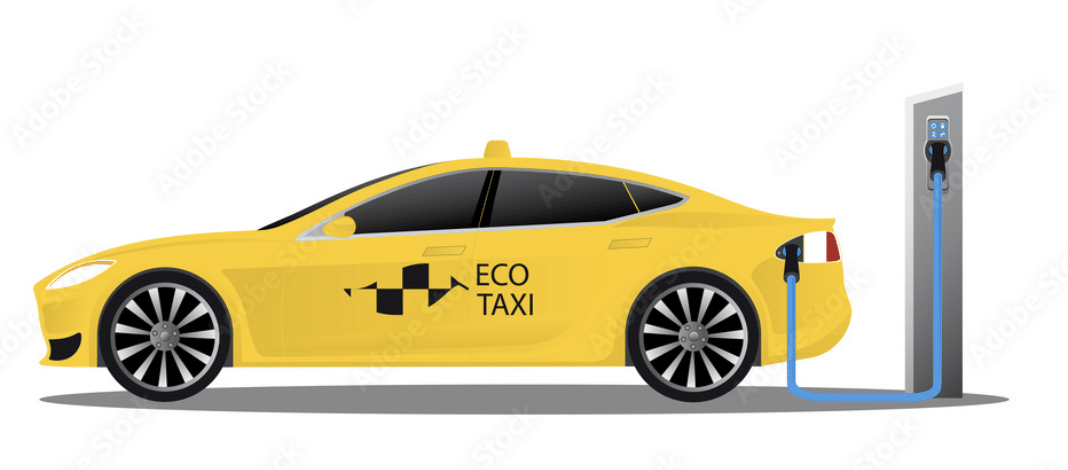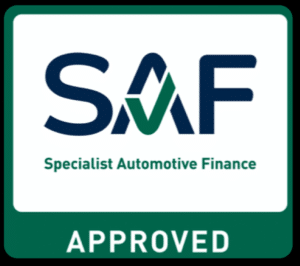How to Get a Private Hire Licence: Your Complete UK Guide
How Do You Apply for a Private Hire Licence? A Step-by-Step Process
The application process follows a structured sequence that typically takes 6-12 weeks from start to finish. Following these steps in order helps ensure a smooth application without delays or complications.
Step 1: Check Your Eligibility
Confirm you meet the minimum age requirement of 21 years old and have held a full UK or EU driving licence for at least 12 months. Verify your right to work in the UK and ensure you have no disqualifying convictions.
Step 2: Contact Your Local Council
Identify which council covers your intended working area and request their private hire driver application pack. Each council has specific requirements and fee structures, so obtain current information directly from the licensing department.
Step 3: Book Your Medical Examination
Schedule an appointment with your GP or an approved medical practitioner for a DVLA Group 2 medical examination. Book early as appointments can have waiting times of several weeks. The examination costs between £100-£200 and is not available free on the NHS.
Step 4: Apply for Your DBS Check
Complete an enhanced DBS check application through an approved agency. This requires identification documents and costs approximately £50-£64. The process takes 10-14 days on average. Register for the DBS Update Service within 30 days of receiving your certificate.
Step 5: Study for the Knowledge Test
Obtain study materials from your council covering local geography, licensing laws, Highway Code, and safeguarding. Most councils provide practice papers or guidance documents. The test typically requires 80% pass marks across multiple sections.
Step 6: Complete the Knowledge Test
Attend your scheduled knowledge test at the council offices. The test usually lasts 45-90 minutes and covers four to six different sections. Most councils allow up to three attempts per application if you do not pass initially.
Step 7: Submit Your Application
Complete the application form with all required documents including your driving licence, passport, proof of address, medical certificate, DBS certificate, and knowledge test pass certificate. Pay the application fee, which varies from £60 to £500 depending on your council and licence duration.
Step 8: Attend Any Required Interviews
Some councils require personal interviews or additional assessments as part of their ‘fit and proper person’ evaluation. Attend these promptly when scheduled and bring any additional documentation requested.
Step 9: Receive Your Licence and Badge
Once approved, collect your private hire driver licence and badge from the council. The badge must be worn whilst working and displays your photograph and licence number.
Step 10: Register with Operators
Apply to private hire operators in your area to begin accepting bookings. You can register with multiple operators to maximise earning opportunities. Ensure your vehicle is properly licensed for private hire work before starting.
What is a Private Hire Licence?
A private hire licence is a legal requirement that allows you to drive pre-booked passenger vehicles for commercial purposes in England and Wales.
Unlike taxi drivers who can pick up passengers from ranks or be hailed on streets, private hire drivers can only transport passengers who have pre-booked through a licensed operator. The licence ensures public safety by confirming drivers meet strict standards for character, health, and competence.
Private hire vehicles include minicabs, chauffeur services, and ride-sharing platforms. The licence is issued by local councils for their specific areas, though some drivers may need multiple licences to work across different regions.
Who Can Apply for a Private Hire Licence?
Applicants must be at least 21 years old and have held a full UK or EU driving licence for a minimum of 12 months.
Most councils require applicants to be 21 or over, though some areas like Manchester accept applications from those aged 18. You must also have the legal right to work in the UK and be considered a ‘fit and proper person’.
The ‘fit and proper person’ test examines your background and character through enhanced criminal record checks. Councils assess each application individually, considering factors such as criminal convictions, driving history, and overall suitability to transport members of the public safely.
What Are the Medical Requirements?
All private hire drivers must meet DVLA Group 2 medical standards, which require a higher level of fitness than ordinary driving licences.
This medical examination must be completed by a qualified medical practitioner, typically your GP, who has access to your full medical records.
The medical examination covers:
- General health assessment
- Blood pressure checks
- Eyesight tests (must read a car number plate from 20.5 metres away)
- Reviews of pre-existing conditions such as diabetes or heart disease
Medical certificates are typically valid for five years until age 65, then annually thereafter. The cost varies between GP practices but is not available free on the NHS as it is considered a private medical examination.
How Much Does a Private Hire Licence Cost?
Private hire licence fees vary significantly between councils, ranging from £60 for a one-year licence in some areas to over £500 for three-year licences in others.
Typical Costs Breakdown:
- Council licence fee: £60-£500 (depending on area and duration)
- DBS checks: £50-£64
- Medical examinations: £100-£200
- Knowledge tests: £26-£100
- Driving assessments: £42-£99
Total Investment: The complete cost for obtaining a private hire licence typically ranges from £400 to £800 when including all mandatory requirements.
Many councils offer both one-year and three-year licence options, with longer licences providing better value for money despite higher upfront costs.
What is the DBS Check Process?
All private hire drivers require an enhanced Disclosure and Barring Service check to verify their criminal background.
This check reveals any spent or unspent convictions, warnings, cautions, reprimands, and relevant police information.
DBS Application Process:
- Complete an online form through an approved agency
- Provide identification documents
- Pay the fee (£50-£64)
- Receive results within 10-14 days (complex cases may take longer)
Drivers must register for the DBS Update Service within 30 days of receiving their certificate. This service costs £16 annually but allows councils to check your status online, saving time and money on frequent renewals.
What Does the Knowledge Test Include?
The knowledge test assesses local area knowledge, licensing law understanding, Highway Code awareness, and basic numeracy skills.
Most councils conduct written tests with multiple-choice questions covering four to six sections.
Typical test sections include:
- Local geography and street knowledge
- Private hire licensing conditions and policies
- Highway Code rules
- Safeguarding and disability awareness
- Basic mathematics for fare calculations
- English language competency (some areas)
Pass rates vary by section, typically requiring 80% or higher marks. Candidates usually have 45-90 minutes to complete the test, with most councils allowing up to three attempts per application.
How Long Does the Application Process Take?
The complete application process typically takes 6-12 weeks from submission to licence approval.
This timeframe depends on appointment availability for medical examinations, DBS processing times, and your council’s workload.
Key factors affecting processing time:
- Medical appointment scheduling (book several months ahead)
- DBS check completion (10-14 days average)
- Knowledge test scheduling and results
- Council administrative procedures
We recommend starting your application well in advance of when you need to begin work, particularly considering potential delays in medical appointments and DBS processing.
Which Documents Do You Need?
Essential documents include your full UK driving licence, passport or right-to-work documentation, recent utility bills, DBS certificate, medical report, and knowledge test certificate.
Core documents required:
- Full UK photocard driving licence (both sides)
- Passport or right-to-work documentation
- Recent utility bills showing current address
- DBS certificate
- Medical examination report
- Knowledge test pass certificate
- Digital passport-style photographs
Additional requirements may include:
- Character references from professional contacts
- Certificates of good conduct (if you have lived abroad)
- Proof of National Insurance number
- DVLA check codes for licence verification
Ensure all documents are current and match your application details exactly, as discrepancies can cause significant delays.
What Happens After Getting Your Licence?
Once issued, your private hire licence is typically valid for one to three years and allows you to work for any licensed operator in your licensing area.
The licence comes with a badge displaying your photograph and licence number, which must be worn whilst driving.
You can register with multiple private hire operators to maximise earning opportunities. Many drivers work for traditional minicab firms alongside app-based services like Uber, providing flexibility in hours and income potential.
Important reminder: You must also ensure your vehicle is licensed for private hire use and maintain appropriate insurance covering hire and reward activities.
Can You Work in Other Areas?
Your private hire licence is only valid within the area where it was issued, though some reciprocal arrangements exist between neighbouring councils.
London operates separately under Transport for London regulations, requiring specific PCO licences for work within Greater London.
Many drivers obtain multiple licences to work across different areas, though this increases costs and administrative requirements. Cross-border working rules vary significantly, so check with your intended working areas before applying.
Some councils offer enhanced licences allowing work in partner areas, whilst others maintain strict geographical restrictions.
What Are the Renewal Requirements?
Private hire licences must be renewed before expiry, typically every one to three years depending on your initial choice.
Renewal applications require updated DBS checks, medical certificates (if due), and payment of renewal fees.
Renewal timeline:
- DBS Update Service allows online status checks (£16 annually)
- Medical renewals every five years until age 65, then annually
- Full licence renewal every 1-3 years
Late renewals may require complete new applications rather than simple renewals, potentially causing work interruptions. Set reminders well before your expiry date to ensure continuous licensing.
Ready to Start Your Private Hire Driver Journey?
Private hire licensing provides an accessible route into professional driving with flexible earning potential. We at Carvine support drivers throughout this process and can help with vehicle financing once you are licensed. Understanding these requirements and preparing thoroughly ensures a smooth application process and quick entry into this rewarding profession.


